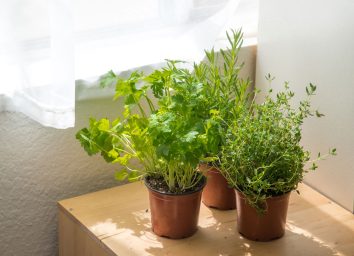17 Herbs to Try for Mind and Body Benefits, Says Science
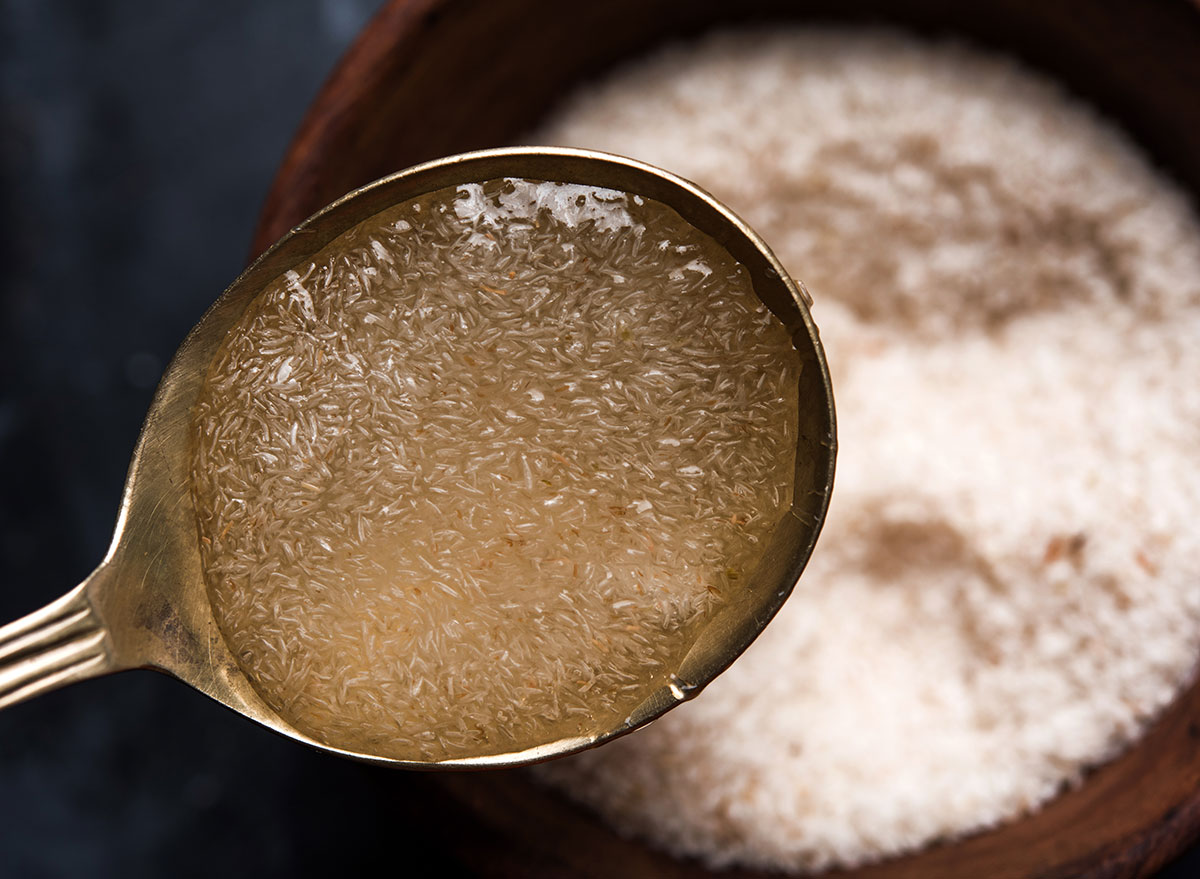
When the ancients overindulged, they didn’t hit CVS for some antacids. They made a tea of filipendula ulmaria, or meadowsweet, for heartburn relief. And you can, too.
To remedy minor ailments, forego the pharmaceuticals and give natural nutraceuticals a try. Below is our list of 20 herbs that have been proven to work, taken from our book The 7-Day Flat Belly Tea Cleanse.
Stick to the dosages specified here, in the studies, or on the label—and make sure to tell your doctor about any herbs or vitamin supplements you plan to take, especially if you are pregnant or nursing, have a chronic condition, or take medication regularly. Remember that even though herbs are natural, they can still be contraindicated, and supplements are not FDA regulated. For more on strengthening your body’s defenses with supplements, check out 8 Best Immune-Boosting Supplements, According to Doctors.
Boswellia (Boswellia serrata)
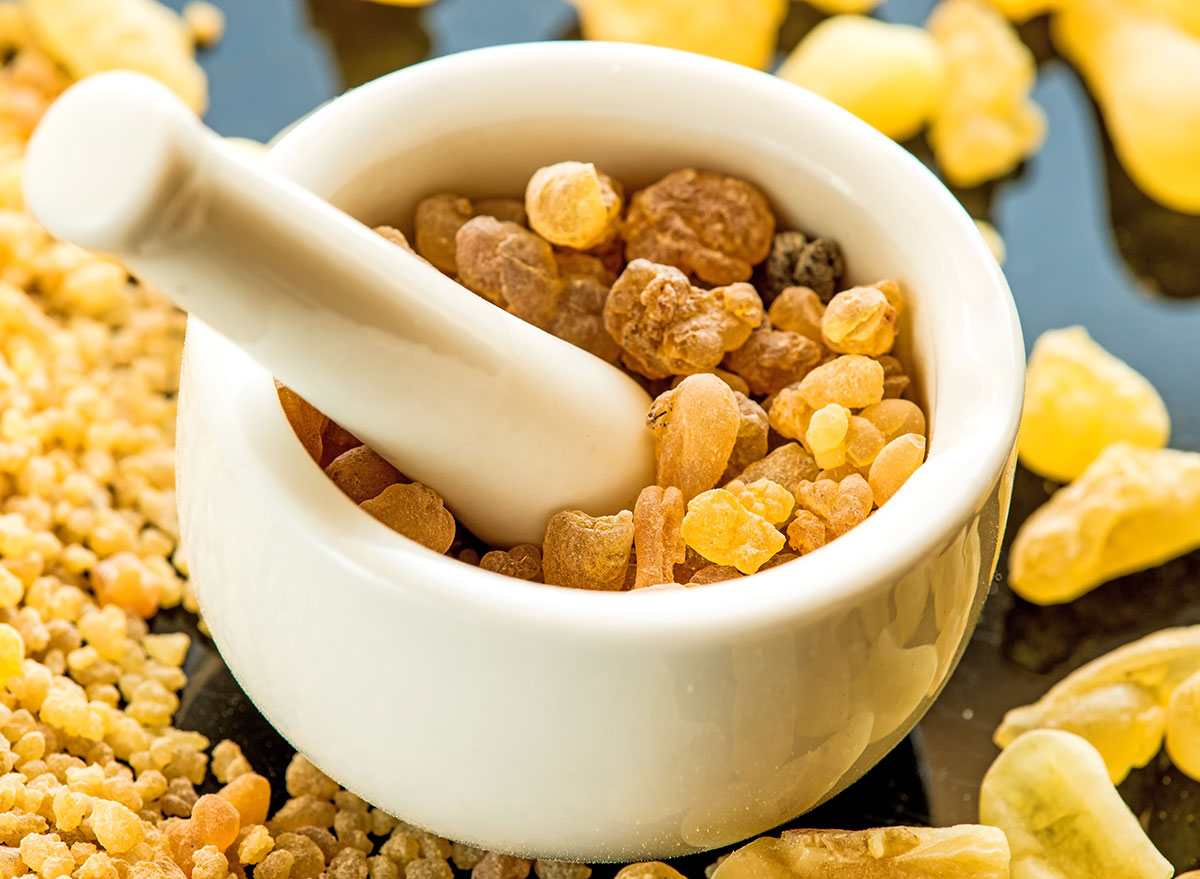
BEST FOR: Arthritis and joint injuries
Also known as Indian frankincense, this gummy resin has been clinically proven to have strong anti-inflammatory effects. Boswellia is known to reduce congestion and heat (kapha and pitta elements in Ayurveda) in the joints and is also used to promote appetite and digestion. In a study published in Arthritis Research & Therapy, researchers gave people with osteoarthritis of the knee an extract of boswellia (5-Loxin). After three months, the herb group showed significantly greater relief than a group given a placebo.
DOSAGE: Take one 300-milligram capsule three times a day, with food.
Turmeric (Curcuma longa)
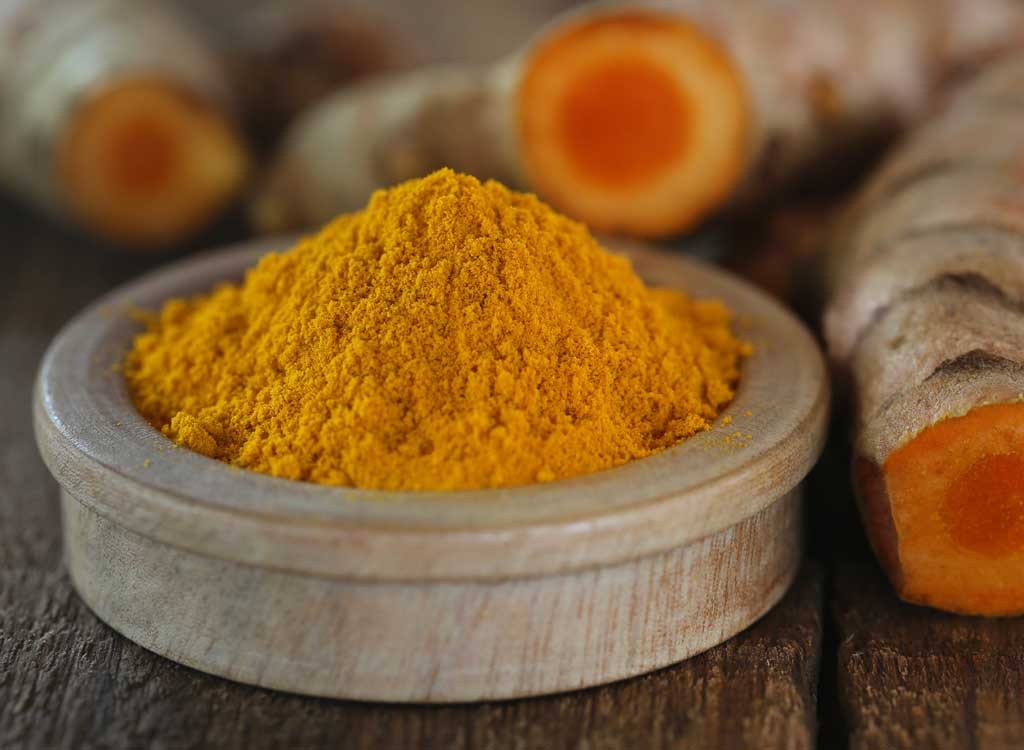
BEST FOR: Arthritis and cancer prevention
Curcumin, the active compound that gives the spice turmeric its bright-gold color, has long been known as an anti-inflammatory and antioxidant. In combination with Boswellia, ashwagandha, and ginger, it may treat osteoarthritis, according to a study published in the Journal of Clinical Rheumatology. And a recent study published in the journal Phytotherapy Research found curcumin to be “comparable” in efficacy to diclofenac sodium, a prescription anti-inflammatory, for treating rheumatoid arthritis.
The American Cancer Society has reported that large studies are being conducted to see how curcumin might prevent and treat cancer; one of the challenges is that it doesn’t absorb well from the intestines, but that could be an advantage for targeting cancer precursors in the colon and rectum. For women with recurrent breast cancer, curcumin might prove especially useful; animal models have shown that curcumin may help prevent metastasis, even after failed treatment with the drug tamoxifen. In women with HER2-positive cancer, curcuminoids also seemed to behave much like the highly successful chemotherapy drug Herceptin, although research is very preliminary.
DOSAGE: It’s best to get your curcumin by using turmeric in curries and other foods. (See: 21 Winning Turmeric Recipes.) If you aren’t a fan of Indian food, take one 500-milligram capsule of curcumin—standardized to 95% curcuminoids—each day.
PRECAUTIONS: Side effects are rare but include flatulence, diarrhea and heartburn. Do not take turmeric if you’re on blood thinners.
Enchinacea (Echinacea angustifolia)

BEST FOR: Common cold
Studies on the effectiveness of echinacea for treating the common cold have been mixed. The largest so far was in 2012 at Cardiff University Common Cold Centre in the U.K., which found that three doses daily, taken for four months reduced the number of colds, and reduced the duration by 26%. The study was peer-reviewed and published in the journal Evidence-Based Complementary and Alternative Medicine. The study was funded by the Swiss manufacturers of Echinaforce. But many experts advise ignoring the naysayers and following traditional usage.
“Native Americans used Echinacea angustifolia—not Echinacea purpurea—and they used only the root,” explains Sheila Kingsbury, N.D., chair of the Department of Botanical Medicine at Bastyr University in Seattle. “Clinically speaking, accessing the root is the best place to start. It can shorten the length of a cold significantly.”
DOSAGE: One teaspoon of echinacea root glycerite liquid every two hours beginning at onset of symptoms; decrease the dose to once every three to four hours after symptoms ease.
For more ways to ease your cold symptoms, don’t miss 17 Magic Foods That Relieve Cold Symptoms.
Fennel (Foeniculum vulgare)
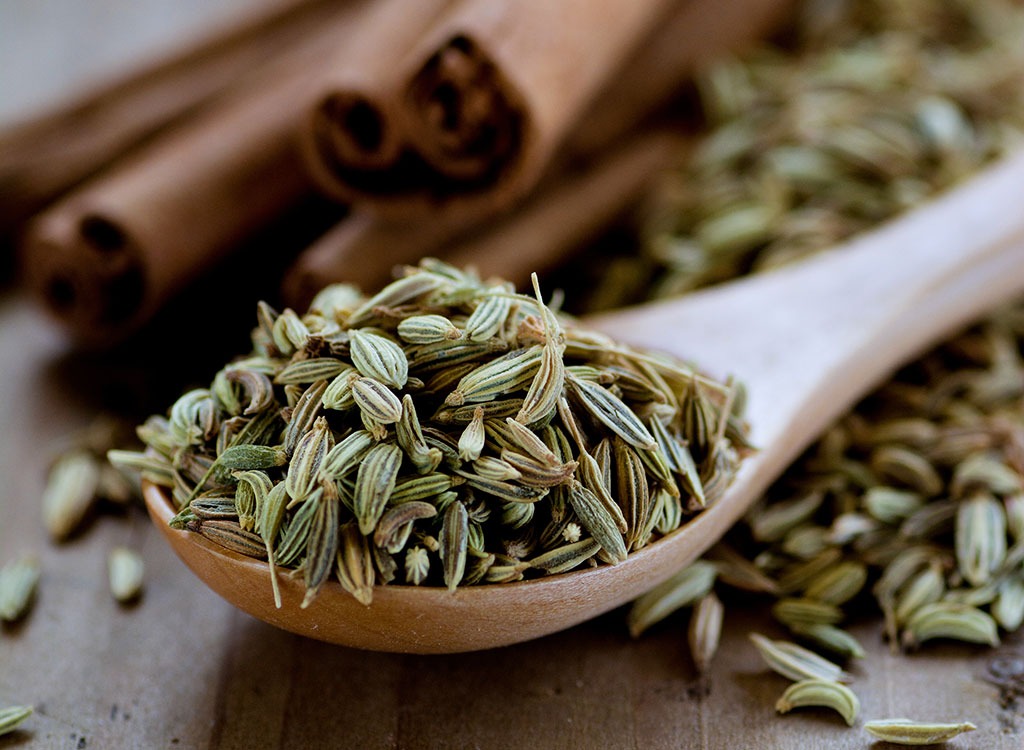
BEST FOR: Intestinal gas
Fennel seeds contain phytonutrients that are thought to reduce spasms in small muscle fibers like those found in the intestines, helping to reduce gassiness. The aromatic quality of the seeds will also help freshen your breath. And a 2011 review published in Pediatrics, for instance, found that fennel tea can be useful for treating a baby’s gas-caused colic.
DOSAGE: Chew a pinch of whole fennel seeds after a meal. Your body will let you know—with one last burst of gas—when to stop.
Flaxseed (Linum usitatissimum)

BEST FOR: Heart health
Nearly twice as many American women die of heart disease and stroke as from all forms of cancer, including breast cancer, according to the American Heart Association (AHA). One reason: high cholesterol. In fact, women tend to have higher cholesterol levels than men from age 45 on, according to the AHA. Flaxseed, which is rich in the omega-3 fat alpha-linolenic acid, may help lower it.
An Italian study of 40 male and female patients with cholesterol levels greater than 240 milligrams per deciliter found that consuming ground flaxseed (20 grams, or about 0.7 ounces, daily) could significantly lower levels of total and LDL cholesterol (the artery-clogging kind), while also improving the ratio of total cholesterol to HDL. (Low levels of HDL may be a greater risk factor for women, according to the AHA.) In a Harvard study of 76,763 women participating in the Nurses’ Health Study, researchers also noted that women consuming a diet rich in alpha-linolenic acid seem to have a lower risk of dying from heart disease and stroke, compared with women whose diets were lacking this fat. Flaxseed is also a high-fiber food; two tablespoons of ground flaxseed have 4 grams of fiber—almost 20% of the 25 grams recommended by the U.S. Department of Agriculture. Lignans, which are a particular type of fiber found in flaxseed, may also be beneficial for preventing breast and prostate cancer, according to preliminary studies. (Lignans are not present in flaxseed oil, however, notes integrative physician and herbalist Tieraona Low Dog, M.D.)
DOSAGE: Low Dog recommends adding 1 to 5 tablespoons of ground flaxseed to your diet several days a week; sprinkle it on cereal or yogurt or stir it into protein shakes. Flaxseed oil—which must be kept refrigerated to prevent rancidity—should be added to salads and not used for cooking.
PRECAUTIONS: Flaxseed and its oil are safe if consumed in normal amounts, although they can produce a laxative effect. “If you eat huge amounts of flaxseed meal, you could develop cyanide toxicity, but this hasn’t, to my knowledge, ever occurred in humans,” says Low Dog.
Garlic (Allium sativum L.)

BEST FOR: Ear infections and cancer prevention
Garlic’s antibiotic compound, alliin, has no medicinal value until the herb is chewed, chopped or crushed. Then an enzyme transforms alliin into a powerful antibiotic called allicin. Raw garlic has the most antibiotic potency, but garlic still has benefits when cooked. Garlic is antimicrobial and anti-inflammatory, so it will treat any infection, but when combined with mullein oil (Verbascum densiflorum), it’s especially effective for ear infections, says a 2010 report in Archives of Pediatric Adolescent Medicine. The mullein oil is soothing and helps draw out fluid to relieve pain and decrease pressure. According to the National Cancer Institute, preliminary studies in 2008 suggest that garlic consumption may also reduce the risk of developing several types of cancer, especially those of the gastrointestinal tract.
DOSAGE: Put three drops of oil in each affected ear, two to three times a day as needed. (The oils are sold in a premixed formula.) For internal use, fresh garlic or capsules may be used; follow label directions.
PRECAUTIONS: Don’t put drops—or anything else—into your ear if you think the eardrum may be perforated.
Ginger (Zingiber officinale)
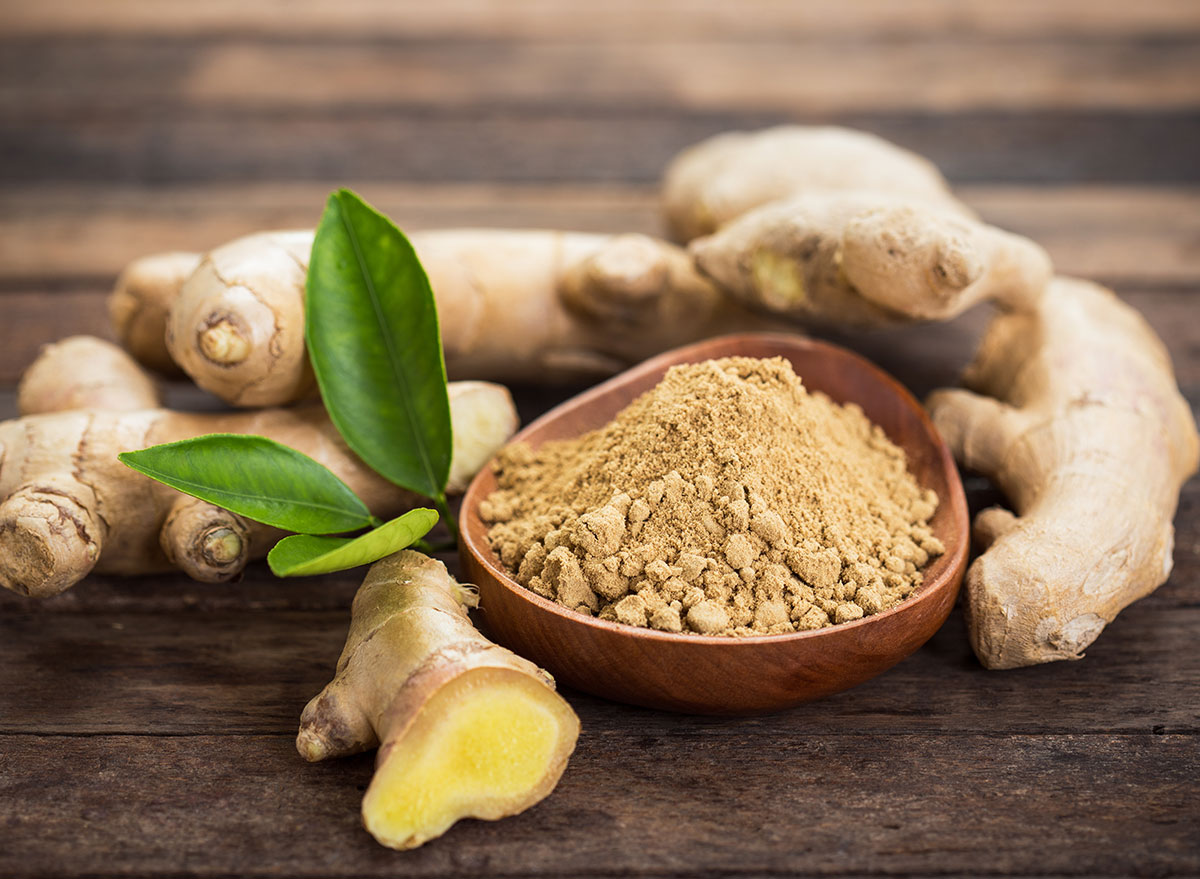
BEST FOR: Nausea and vomiting
A Danish study showed that new sailors prone to motion sickness had less vomiting than a placebo group. Research published in Obstetrics & Gynecology found that 88% of nausea-plagued pregnant women got relief when they took 1 gram a day of ginger powder for no longer than four days.
DOSAGE: For motion sickness, take a 1-gram capsule of powdered ginger root about an hour before you embark and another every two hours or as needed. For morning sickness, take 250 milligrams four times a day. Cooking with the herb may also be helpful.
PRECAUTIONS: Few side effects are linked to normal ginger consumption, but powdered ginger may produce bloating or indigestion. Ginger may also exacerbate heartburn in pregnant women. As could 18 Foods Making Your Heartburn Worse.
Milk thistle (Silybum marianum)

BEST FOR: Liver health
Silymarin in milk thistle seeds has a remarkable ability to protect the liver. This herb has been shown to help treat hepatitis and alcoholic cirrhosis. “In our analysis,” says Mark Blumenthal, executive director of the American Botanical Council, “a clear majority of studies support milk thistle seed extract for liver conditions.” A 2010 NIH-NCCAM study on the effects of silymarin on hepatitis C hepatology showed multiple positive effects demonstrating its antiviral and anti-inflammatory properties. Because most drugs are metabolized through the liver, many herbalists recommend silymarin for anyone who takes liver-taxing medication.
DOSAGE: 500 milligrams daily for liver health; also can be steeped in a tea.
Ginseng
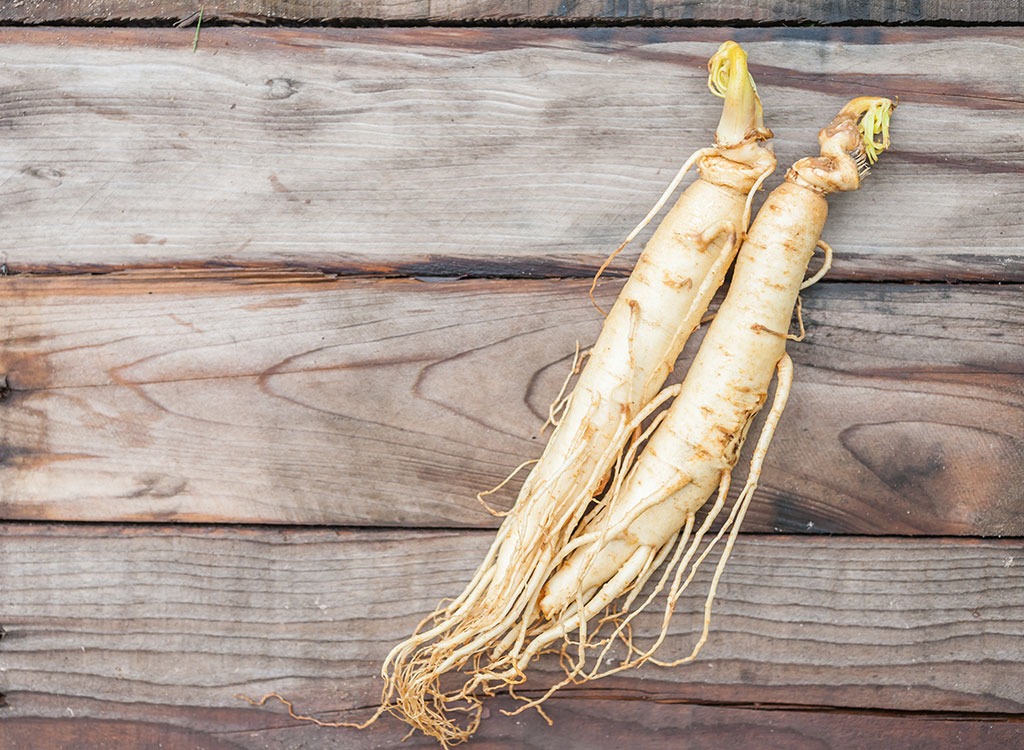
BEST FOR: Immune enhancement and diabetes
Many studies show that ginseng has “adaptogenic” powers, which means it helps the body adapt to stress and revs up the immune system. Most studies have used Panax ginseng (Asian ginseng). A 2013 University of Maryland review found that Asian ginseng may help boost the immune system, reduce the risk of cancer, and improve mental performance and wellbeing. And subjects who took daily doses of ginseng got fewer colds and less severe symptoms than a placebo group. Ginseng also reduces blood sugar levels. A study in Toronto, Canada, found that Korean red ginseng improved glucose and insulin regulation in well-controlled type 2 diabetes. (Of course, diabetes requires professional treatment, so consult your physician about using ginseng.) Studies also have found ginseng supports liver function and one preliminary study suggests that American ginseng (Panax quinquefolius), in combination with ginkgo (Ginkgo biloba), may help treat ADHD.
DOSAGE: 500 milligrams daily, best for short-term, stressful events
PRECAUTIONS: Should not be taken for more than six weeks. Avoid caffeine when taking ginseng, and do not take if pregnant.
Goldenrod (Solidago virgaurea)
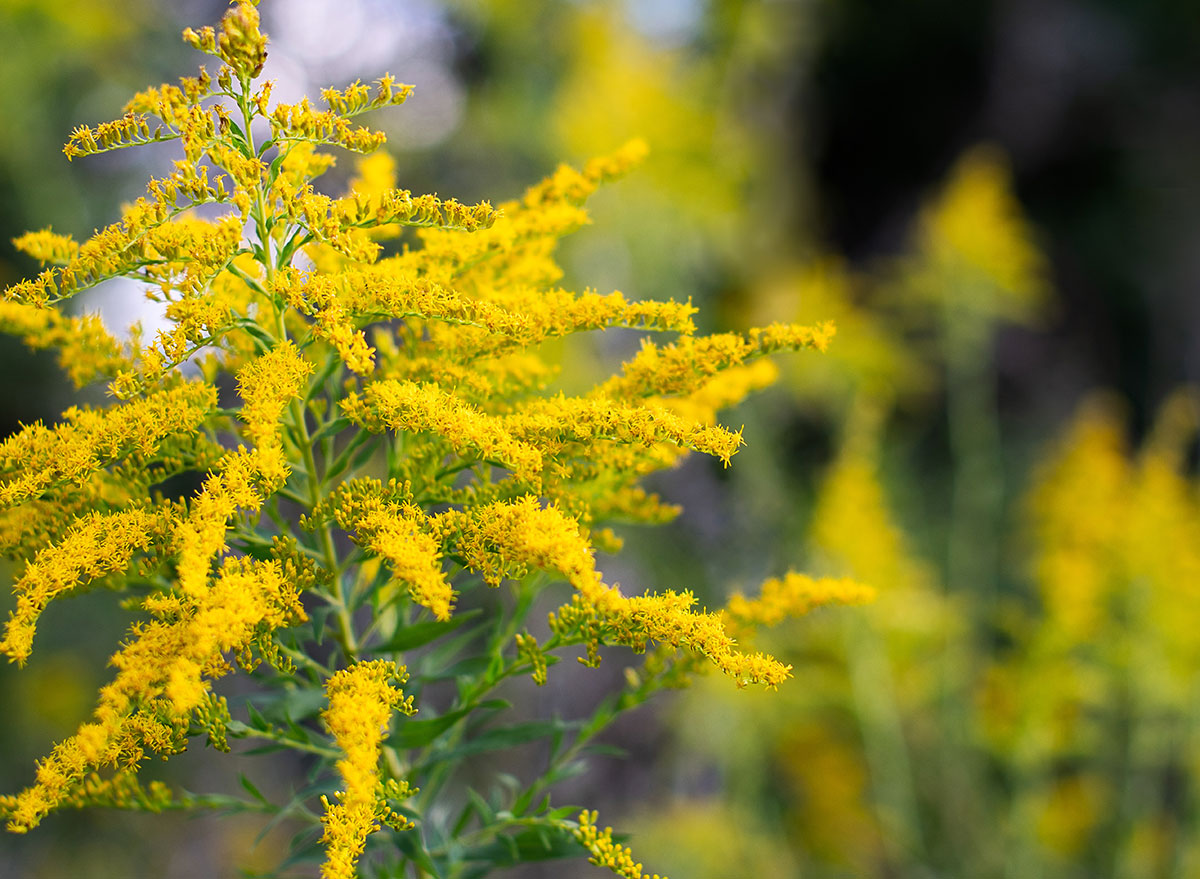
BEST FOR: Nasal congestion
Goldenrod is particularly effective for treating congestion caused by allergies. Surprised? That’s because goldenrod gets a bad rap. “People blame goldenrod for their allergies because they look across the field and see the beautiful yellow flowers,” says herbalist Margi Flint, author of The Practicing Herbalist. “But it’s the blooming ragweed they can’t see that causes all the trouble. In nature, the remedy often grows right next to the cause.” Also used for urinary infections and cystitis, and to flush out kidney and bladder stones.
DOSAGE: Place three drops of the extract under the tongue; repeat as necessary until nasal passages are clear.
Goldenseal (Hydrastis canadensis)
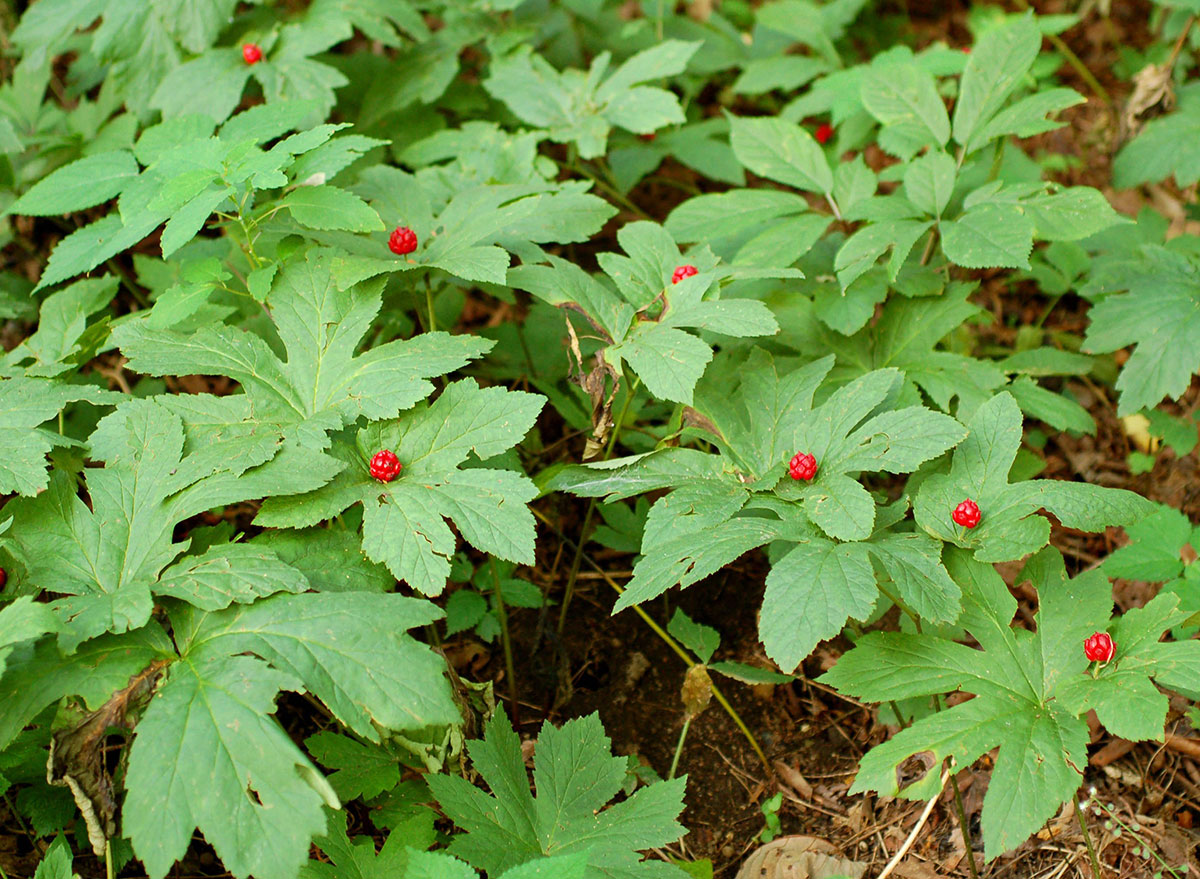
BEST FOR: Digestive-tract infections
Goldenseal, an herbal antibiotic, is often marketed in combination with echinacea as a treatment for infections, but it is effective only in the digestive tract, not for colds or flu. A 2012 University of Maryland study reported in Clinical Advisor found that goldenseal is an effective antibacterial agent and an aid to digestion. For gastrointestinal infections (e.g., ulcers, food poisoning, infectious diarrhea), ask your doctor about using goldenseal in addition to medical therapies. Also, can be used topically for wounds and infections.
DOSAGE: For internal use, take a 300-milligram capsule three times a day; apply a dilution as needed for external use.
PRECAUTIONS: Can be toxic if taken to excess. May interact with antidepressants and codeine. Do not use if pregnant, nursing or suffering from high blood pressure.
Lavender (Lavandula angustifolia)
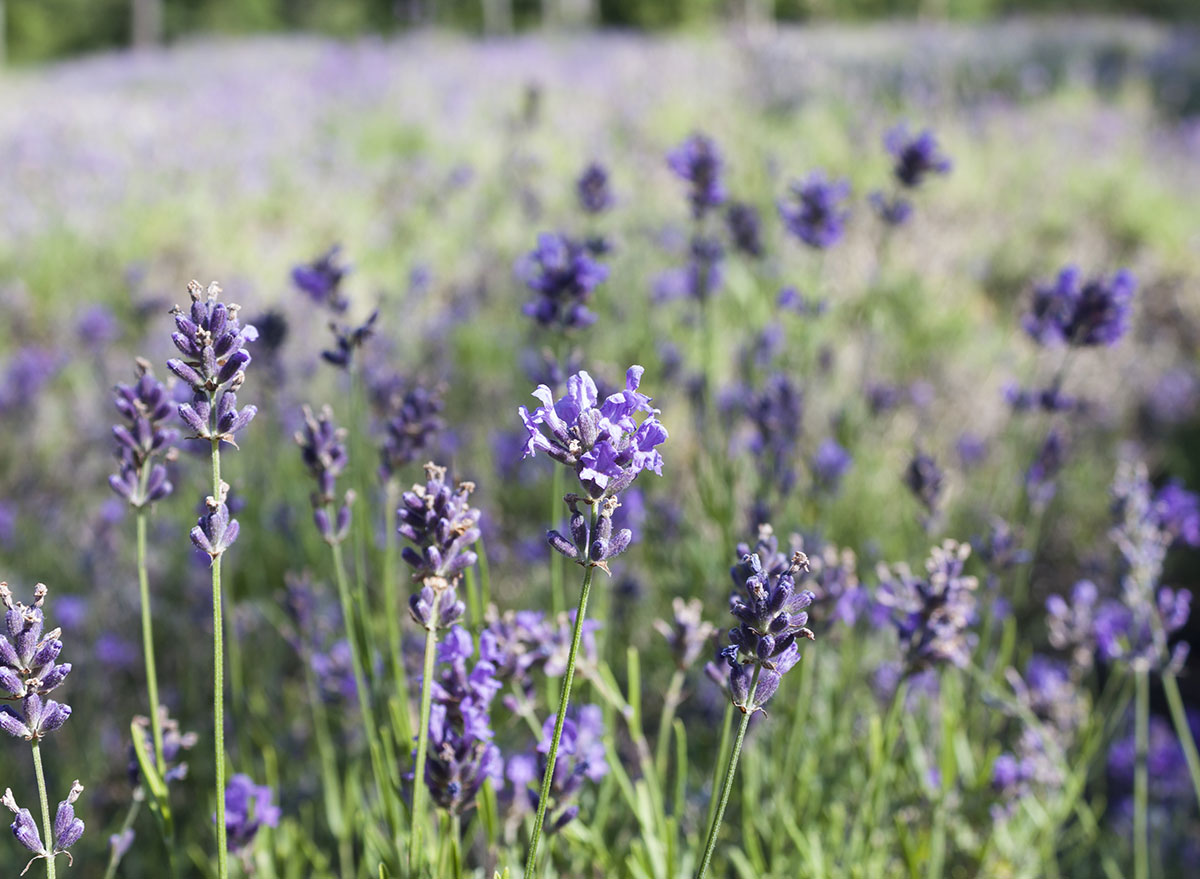
BEST FOR: Headaches
“The scent of lavender triggers a calming response, releasing tension in the scalp muscles a bit, which eases the pain,” explains Kingsbury Herbalist Rosemary Gladstar. She recommends using lavender oil in a pain-relieving foot soak: Add a few drops to a hot footbath, and then put a cold lavender-infused pack on the forehead. “This draws heat away from the head, and is guaranteed to make you feel better,” she says.
DOSAGE: Dab a few drops of essential oil on each temple and rub some around the hairline. Breathe deeply and relax; repeat as needed.
PRECAUTIONS: Do not take the essential oil internally unless under the care of a professional.
Lemon balm (Melissa officinalis)
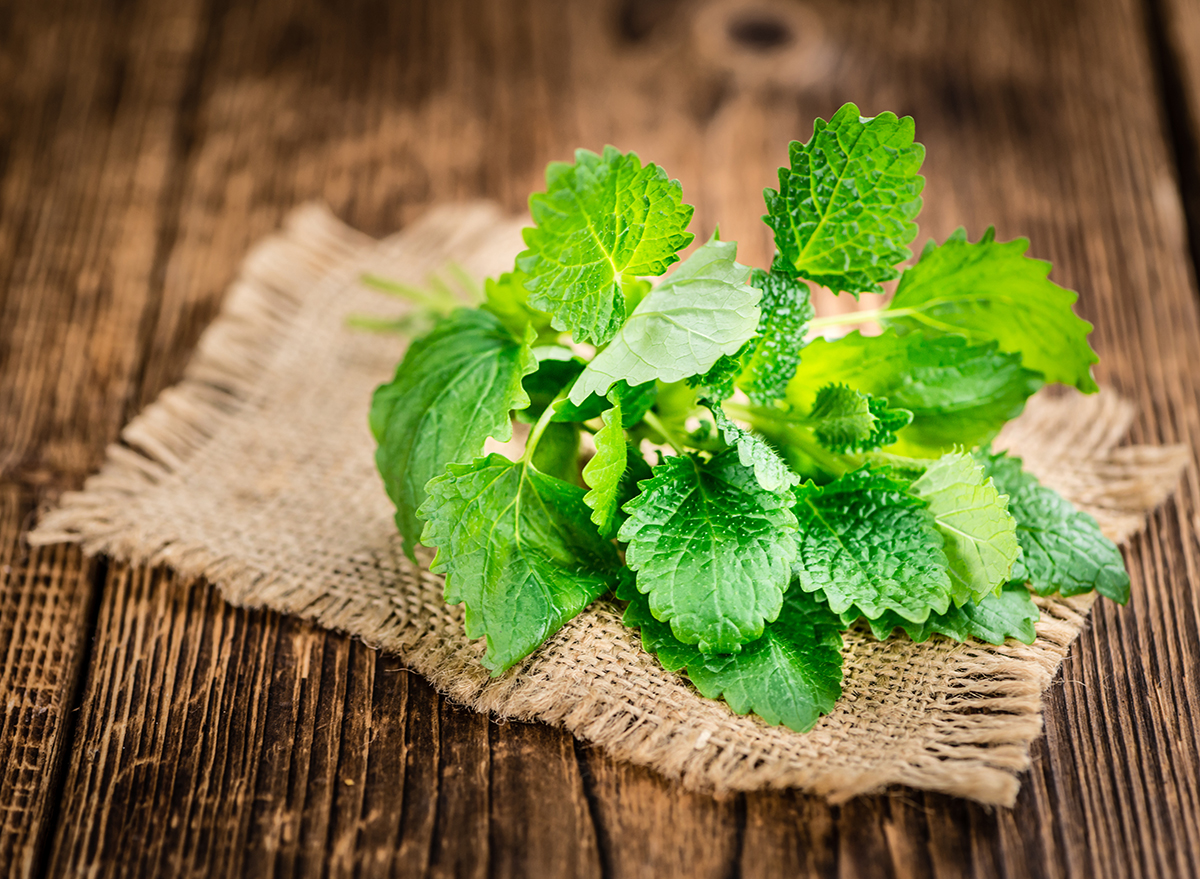
BEST FOR: Anxiety and herpes
Science has shown that lemon balm is tranquilizing. Several double-blind studies have found that a 600-milligram dose promoted calm and reduced anxiety. The herb and its oil have been used in Alzheimer’s special care units to calm those who are agitated. (Related: 5 Foods To Help Prevent Alzheimer’s, According to Doctors.)
To decompress after a tough day, try a cup of lemon balm tea; for extra benefit, mix with chamomile. Lemon balm also has antiviral properties and has been shown to reduce the healing time of both oral and genital herpes. German researchers gave people in the early stages of herpes simplex virus outbreaks lemon balm cream or a placebo. The herb group had milder outbreaks that healed faster.
DOSAGE: Available in capsule form, tincture, and essential oil; follow label instructions.
PRECAUTIONS: Do not take the essential oil internally unless under the care of a professional.
Meadowsweet (Filipendula ulmaria)
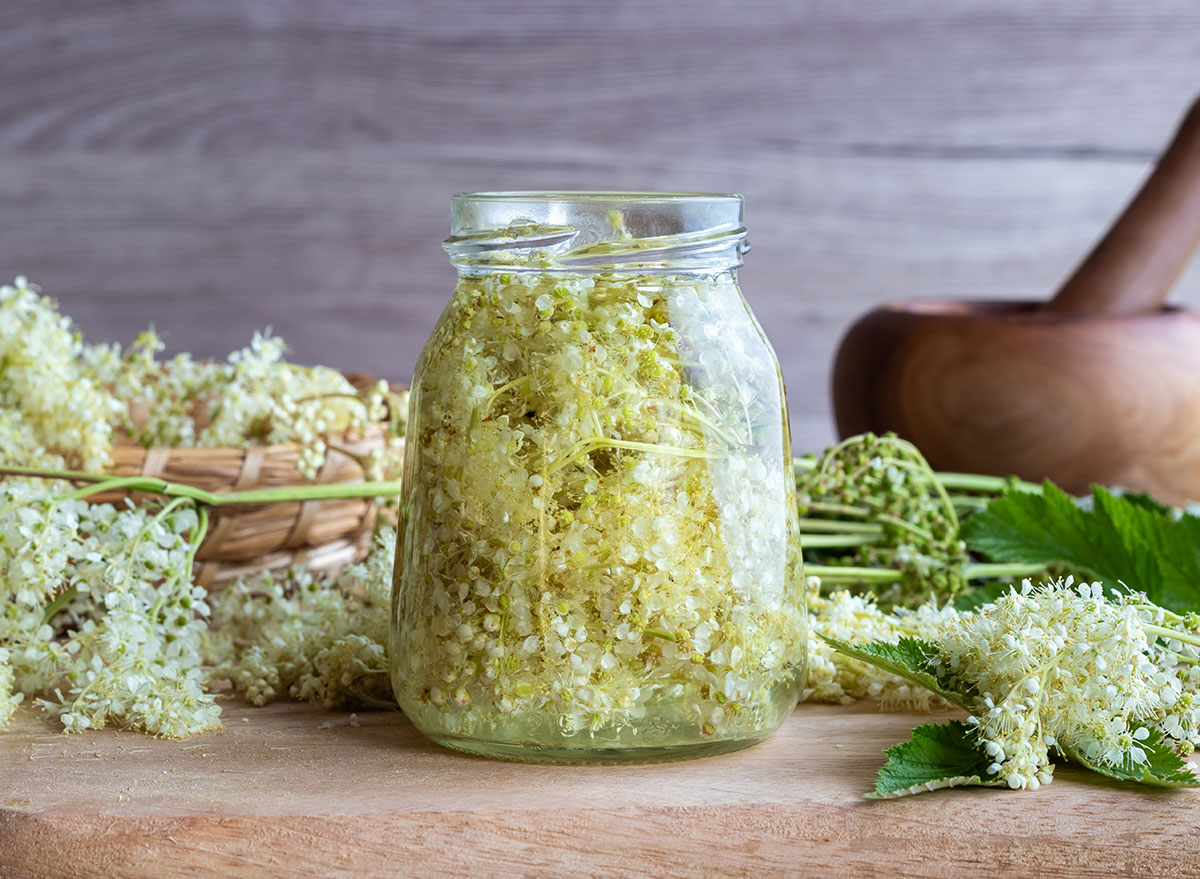
BEST FOR: Heartburn
The Native American herb, high in salicylic acid, calms inflammation in the stomach, often working within a day or two, says Sheila Kingsbury. “For people on protein pump inhibitors who are desperate to get their heartburn under control without medication, I have them drink one cup of meadowsweet tea a day, and that’s all they need,” she says. “They’re always shocked that it’s so easy.”
DOSAGE: Pour 2 teaspoons of the dried herb in a cup of hot water; steep 20 minutes and drink once a day. (The slightly sweet tea has a mild almond flavor.)
PRECAUTIONS: Do not take meadowsweet if you’re allergic to aspirin.
Psyllium (Plantago spp.)
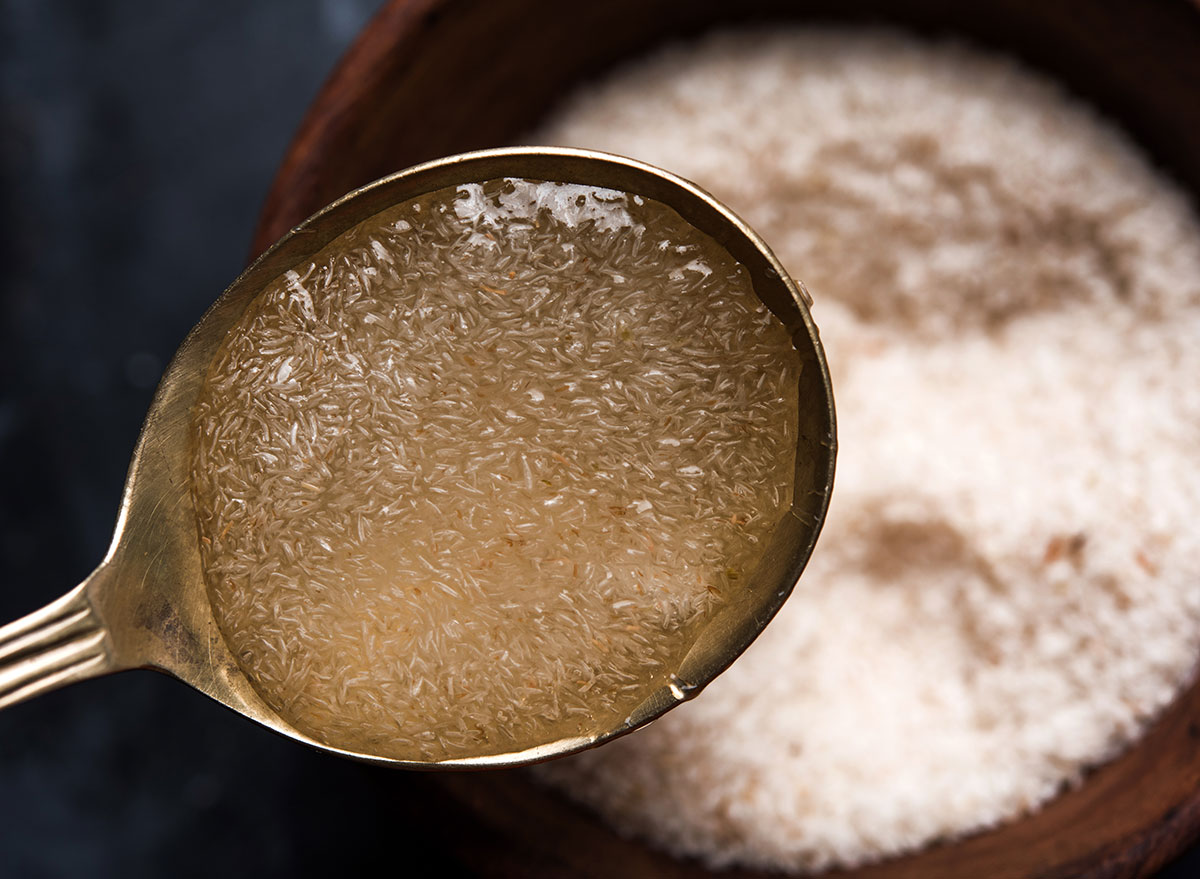
BEST FOR: Digestive problems
Psyllium is a tiny seed that contains mucilage, a soluble fiber that swells on exposure to water. For diarrhea, psyllium can absorb excess fluid in the gut. For constipation, psyllium adds bulk to stool, which presses on the colon wall and triggers the nerves that produce the urge to go. Also helps relieve hemorrhoids and helps remove toxins. May be used topically to draw out infections such as boils.
DOSAGE: Follow label directions; also available in capsule form.
PRECAUTIONS: When using psyllium, drink plenty of water; do not exceed the recommended dose. For help see: How to Make Sure You’re Drinking Enough Water.
St. John’s Wort (Hypericum perforatum)
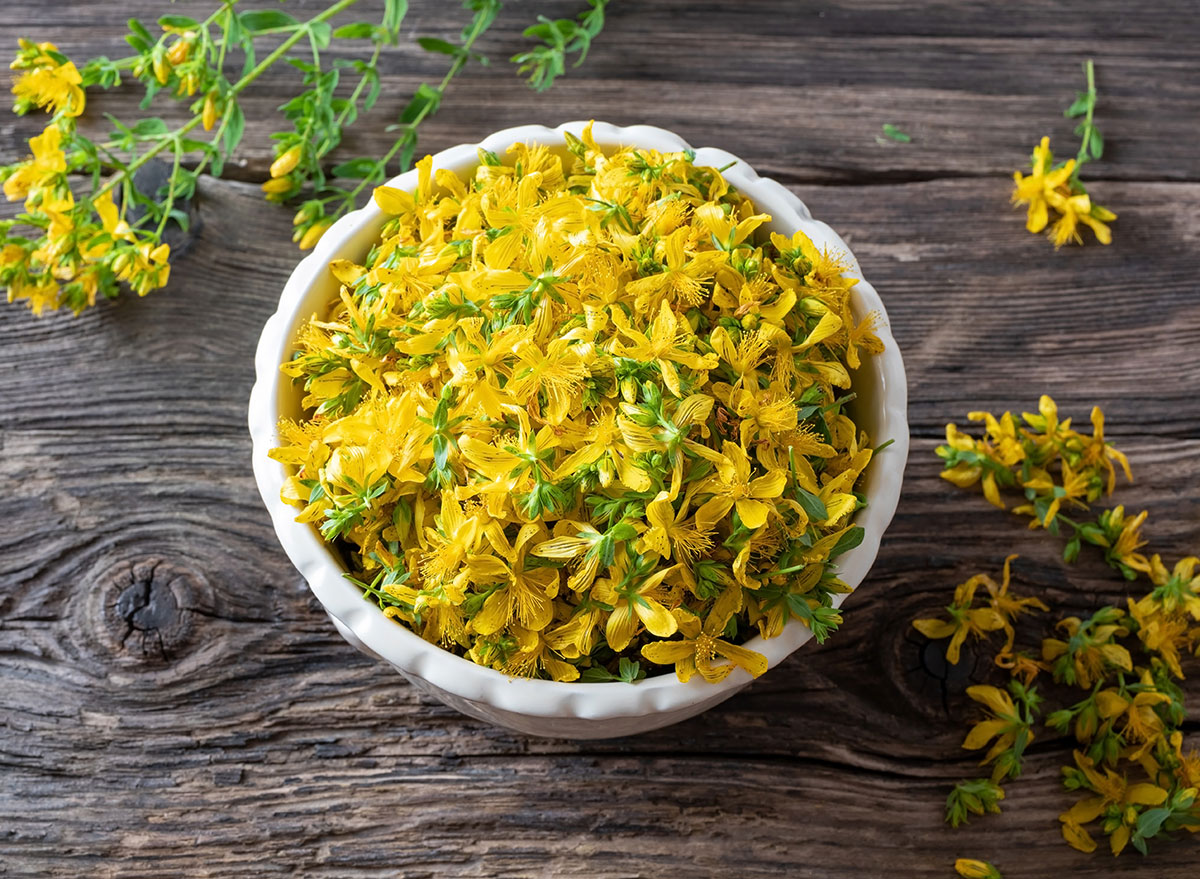
BEST FOR: Depression and pain
“Long before it was ever used for depression or anxiety, St. John’s wort was used as a pain reliever and an anti-inflammatory for muscle pains, burns, and bruises,” explains Rosemary Gladstar, adding that blending the oil with the alcohol-based tincture helps draw the active constituents into the skin for faster healing. For mild depression, St. John’s wort often works as well as some antidepressants but with fewer side effects. “We recently concluded a comprehensive review of the scientific literature on St. John’s wort, and 21 of 23 studies support it for mild to moderate depression,” says Blumenthal. It’s not clear if St. John’s wort is as effective as selective serotonin reuptake inhibitors (SSRIs) such as Prozac or Zoloft, but a 2013 Mayo Clinic overview states that scientific evidence supports its use for mild to moderate depression; for severe depression, the evidence remains unclear.
DOSAGE: For depression, studies showing benefits have used 600 to 1,800 milligrams a day; most have used 900 milligrams a day. For pain, make a liniment by mixing equal parts St. John’s wort tincture and St. John’s wort oil. (Most concoctions come in 2-ounce bottles.) Mix vigorously before using, apply topically to affected area (avoiding the eyes), and massage into skin as needed.
PRECAUTIONS: Stomach upset is possible, and St. John’s wort interacts with many drugs, including possibly reducing the effectiveness of birth control pills; so seek professional advice if you are taking a prescription medication. Depression requires professional care; ask your physician about St. John’s wort. May cause sensitivity to light.
Umckaloabo (Pelargonium sidoides)

BEST FOR: Cough and cold
A really fun herb to pronounce, umckaloabo means “heavy cough” in Zulu. The South African herb is a powerhouse with antiviral and antibacterial properties, says herbalist Mark Blumenthal. “There are good clinical studies on the use of umckaloabo for treating bronchitis as well as tonsillitis,” he says, adding that taking umckaloabo at the onset of symptoms will bring relief within a day or two. Recent German studies of the preparation found that it significantly reduced symptoms and duration of colds and cough.
DOSAGE: Take as drops, syrups, chewable tablets or sprays. Follow package instructions.
Also consider adding these 30 Best Immune-Boosting Foods to your plate.

